Because you clicked on this article about 529 educational savings plans – I’m going to assume you have some passing interest, or concern, or terrified curiosity, in strategies to fund college education for your family. Nice work amigo, you’re the kind of fella (or fellerina?) that we like round these parts. And while you are to be commended for your diligence in seeking out some wisdom on the topic, this article right here is actually about something a little different than how to pay for your children’s college education. For that you’ll want to look at our writs on diligent saving, budgeting and even scholarships. Today, I’m going to share a hack with you that, if done properly, can fund the college expenses of your grandchildren for a relatively small amount of cash right now.
Why would you want to fund your grandchildren’s education?
A good man leaves an inheritance to his children’s children, but the sinner’s wealth is laid up for the righteous. Proverbs 13:22
Ok, so you’re supposed to leave an inheritance to your children’s children. Let’s not overspiritualize the Proverbs, shan’t we, and just take that for exactly what it says. Now then, how are we to do this without leaving our grandchildren in the precarious spot of inheriting a lump of cash? Haven’t we heard that dropping cash on kids can be dangerous? (Um, yes… very).
I’d like to illustrate the power of a 529 educational savings plan when it is used to fund education for your yet-unborn grandchildren. This isn’t the only way to fulfill on Proverbs 13:22, of course, but it’s a good option!
First let me explain a few basics. A 529 savings plan is a vehicle that was created in 1997 by the Taxpayer Relief Act to help parents effectively save for the college education of their children. These plans were modified a few times over the years such that they now are a vehicle to save money on a tax-free basis. You get to put after-tax dollars into an account that can grow tax-free and then be spent on qualified education expenses. Most people who are using these plans set them up for their children at some point, save for between 1 and 18 years, and then spend the accumulated funds for their children’s college education. That’s not a bad way to go, but for those who are able, there’s an even better use of these plans.
One feature of the 529 plan as it is currently constructed is that owners can change the beneficiary of the account at any time. To whom can they change the beneficiary? Any member of the current beneficiary’s family. And according to the IRS, a member of the beneficiary’s family includes their:
- Spouse
- Son, daughter, stepchild, foster child, adopted child or a descendant
- Son-in-law, daughter-in-law
- Siblings or step-siblings
- Brother-in-law, sister-in-law
- Father-in-law, mother-in-law
- Father or mother or ancestor of either, stepmother, stepfather
- Aunt, uncle or their spouse
- Niece, nephew or their spouse
- First cousin or their spouse
Lest you protest this plan with the ever-more-popular idea that you’re not even sure college is going to matter by the time your kids turn 18 (much less your grandkids), these plans can also be used to fund up to $10,000 per year for K-12 expenses. Even homeschool families may benefit from these funds. So there is a very good chance that your descendants will find a great use for these funds, one way or another.
Why use a 529 plan for Multigenerational inheritance?
You may be familiar with the power of compound interest. Time is probably the most powerful factor when it comes to investing returns – you don’t need to beat the market to do well, you need to invest for long periods of time in a mostly boring, diversified portfolio. To illustrate the power of compound interest, consider a person who saves $2,500 annually from age 21 to age 30 and then stops saving, and another person who saves the same amount from age 31 to age 70. If they both get the same 7% rate of return – who has more at the end? It’s the one who started early.
There are lots of places where Americans tend to be decent at taking advantage of this principal and leaving their money invested for long periods of time in order to take advantage of compound interest. Participation in 401k plans is at an all-time high right now, for example, and those plans actually enforce some hefty penalties for folks who withdraw money early. But there is one plan that has the potential to be ultra powerful, and alas is almost never taken advantage of – the 529 plan. Most people save for 18 years or less in a 529 plan, so they get some benefits from compound interest, but what if you could get 40 or more years of compounding?
Let’s say you set up a new 529 educational savings plan for your child the day after they are born. If you think that you can earn 8% returns in your 529 plan, and you’re able to put $300 per month away for college for 18 years, you’ll have about $145k to spend when the time comes. That’s a good use of a 529 plan that will save you real money in taxes.
Now what if you were to do the same thing, but instead of spending that money on your child’s education, you are able to allow the account to keep growing for your grandchildren? You could do this either by putting in $600 per month for the first 18 years, or by sticking to $300 and finding a different vehicle to fund your children’s education. Either way, if you were able to take $300 per month for 18 years and then leave it alone for a total of 40 years (22 years longer after your child turns 18), now that account is going to have about $792k available for grandchildren’s educational needs. There aren’t too many ways to hand this kind of money over to grandchildren tax-free that don’t require you to first die.
Another option for people who can’t really imagine having an extra $300 per month to save for hypothetical grandchildren – if you were to experience a windfall (maybe some inheritance) around the time your child was born and you could put $10k into a 529 plan and leave it alone for 40 years, you should expect to build up around $217k. Not a bad way to turn a small inheritance for you into a big blessing for your future generations!
The nice thing about these accounts is that you can change beneficiaries as needed – so if you set out to follow one of the above plans and you end up needing the money for your own children, no sweat. But if you find that your wise stewardship of resources leads you into a position of financial strength way beyond what you can currently imagine, then maybe you will be able to let the compound interest ride and fund several generations of future children! Win.
A brief word of caution
At Abraham’s Wallet we are many things, but we aren’t accountants. Given this sometimes inconvenient fact, we must add a few disclaimers to the above thoughts. There are situations in which changing the beneficiary of the 529 plan that you own can trigger a tax called the generation-skipping tax. This usually happens when the plan is established before a grandchild is born and in which the grandparent (not the child) is named as the beneficiary. It could also happen if you follow our plan as described above but transfer the beneficiary to a great-grandchild instead of a grandchild. May we all be so blessed as to have that opportunity!
There are other circumstances that can trigger this tax, and there are also provisions that make it unlikely for most families to have to pay taxes when changing beneficiaries, even if they are skipping a generation. Because of these complexities, we recommend running your plans by a CPA or financial planner as you set up a 529 plan that may end up being used as a multigenerational device. If done thoughtfully, most families should be able to use to 529 plans to create meaningful value for many generations.
To close, if your family values education and has a mind to push resources out past your own lifespan, then I love the idea of using 529 plans for that purpose. A 529 plan has some built-in features that make it a good tool for Biblical inheritance. Because it’s earmarked for education, it requires work and claiming. If education is a family value, then a 529 plan can reinforce that piece of your shared identity. And finally, the product of education is often increased productivity. Given these three ingredients (identity-laden, productive and requires work/claiming), the 529 plan fits the Biblical inheritance bill nicely.
*Mark Parrett is one of the founders of Abraham’s Wallet. When not blogging for you here, he’s raising a family in Salt Lake City, UT and working as a financial planner at Outpost Advisors.






